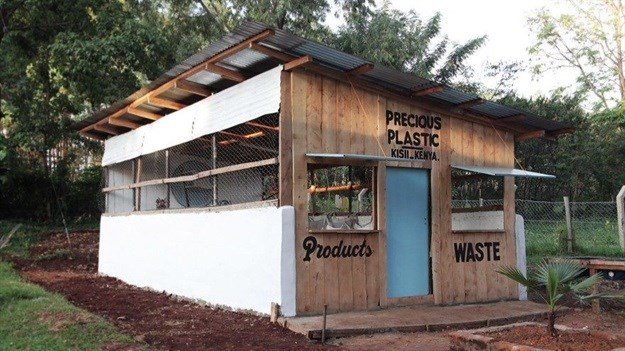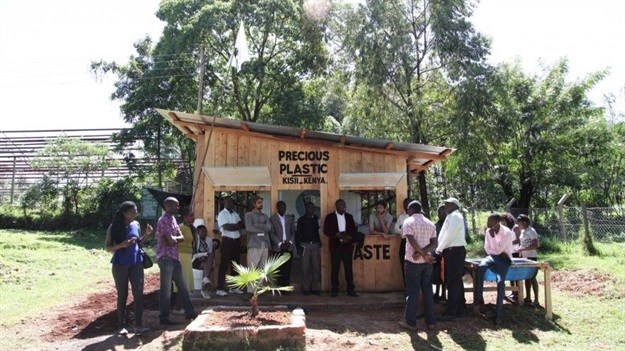It has been estimated that by 2050 there will be more plastic in the ocean than fish. Recently, a whale was found dead with more than 30 plastic bags in its stomach. Researchers said that the plastic found in the whale is 'not surprising', as it is estimated that five trillion pieces of plastic litter are afloat in the world's oceans.
Netherlands-based industrial designer and Design Indaba alumnus, Dave Hakkens is keenly aware of this problem. He has been trying to address it through his plastic recycling project: Precious Plastic project. The recently launched third version is called Precious Plastic version 3 project. With each project, he has been making detailed instruction videos to show people, often in developing countries, how to build their own recycling machines. With this extended project, he will collaborate with other designers to show people, who do not have access to much resources, how to make functional objects with plastic.
His work won him a D&AD award as well as the Eco Coin award from Next Nature Network last year.
Hakkens says he believes that design and creativity can address complex problems: “To start up an idea is a powerful tool to use these days. A designer is able to bring people together by just sharing an idea or a potential solution.”
He uses the example of how another artform, documentary film, inspired him while studying at the Design Academy. He watched the Story of Stuff and adds, “I think all those documentaries about problems really motivated me and has a big influence on what I’ve done."
His first pilot project for this current version was to set up a Precious Plastic workspace in Kisii town, a city near Lake Victoria in the North of Kenya. In partnership with the United Nations, the team worked for two weeks to renovate a shed to show the residents how to build a workshop and how to work with the recycled machines. “They didn’t have a space available and they found an old chicken shed and it looked like shit, we had to spend a lot of time fixing that," he says.
In the end, he found this experience useful and had to adjust his plans frequently because of materials that were not available. “You constantly had to come up with a new solution due to the limited resources and I like that as a designer.”
The locals provide them with updates and feedback regularly and he plans to return to Kenya to assess the progress on this project.
Hakkens adds that he gets more motivated when he travels around the world and sees all these landfills full of plastic and realises how massive this problem is. “We're not done yet. We've barely touched the plastic problem. We need to do more.”
The next project is in the Maldives.
































